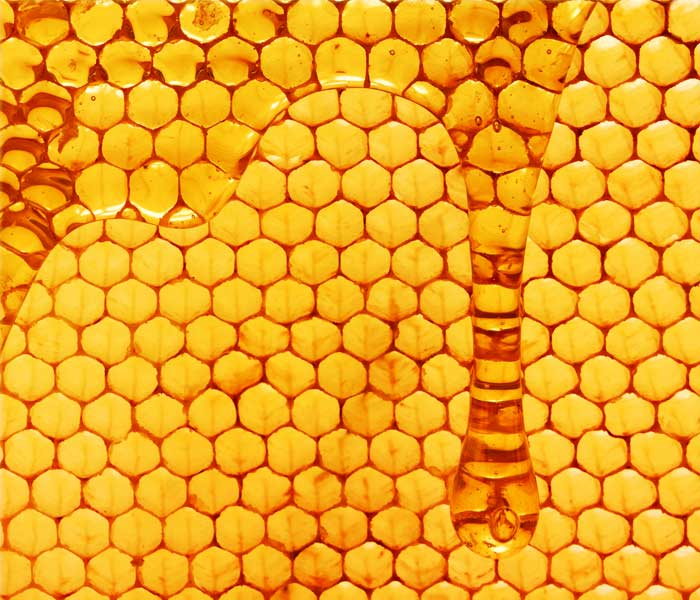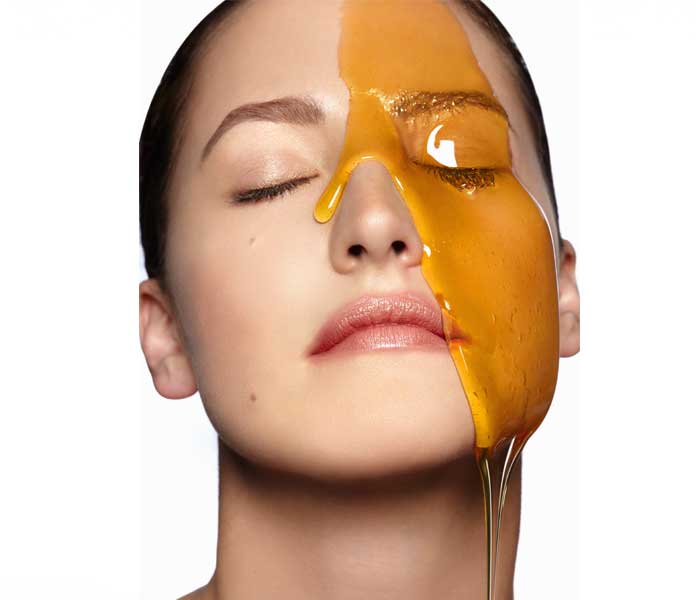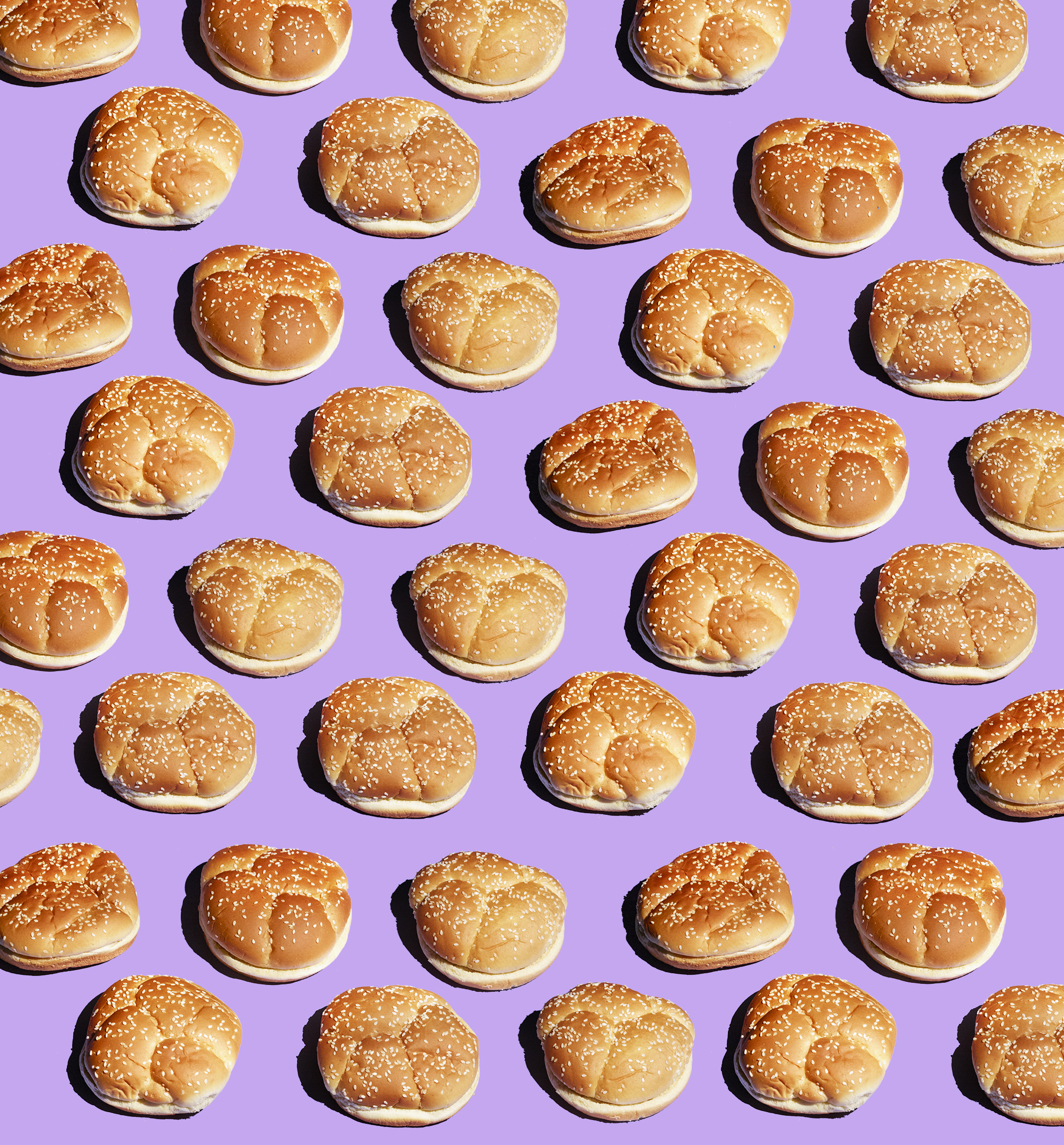Enjoy a bit of honey to satisfy that sweet tooth? It turns out you’re not alone.
Experts have found residue of beeswax on pottery from the Stone Age, and it’s thought many cultures living in climates mild enough for bees to survive would have enjoyed the taste of honey – a rare sugar hit in prehistoric times.
In Spain, rock paintings believed to be from as early as 6000 BC show people raiding honey from hives, and archaeologists have also found images of beehives in Egyptian tombs dating back to the 7th century BC.
The Ancient Greeks and Romans enjoyed honey so much they would use it to make cakes as offerings to the gods, and widely believed bees had magical powers.

Fresh from the hive
While cooking with honey is not exactly a new fad, is using honey in sweet treats any better for you than other sugars?
Nutritionist Vicky Carson says honey not only adds a delicious flavor, it also contains health-boosting vitamins.
“Honey is my preferred sweetener over white, refined sugar, as it has additional benefits for our health that the refined sugars are lacking,” she says.
“Honey contains vitamin B6, which is important for our brain function and serotonin production. It also has vitamin C and antioxidants, which we know are good for our general health and immune system.”
But before you pour a liberal dollop on your pancakes, Carson says it’s important to remember a little goes a long way.
“Honey is high in sugar – with more grams of sugar in 1 tablespoon than white sugar – so we need to make sure we are having it in small quantities,” she explains.
“If, for example, a recipe calls for ¼ cup of honey, but it makes more than 15 serves, then that’s okay, but it’s still a good idea to keep honey as a treat food and not add it to too many things.
“If you like mixing hot lemon, honey and ginger drinks, you can still enjoy a delicious brew with a range of health benefits – just don’t have more than
1 tsp of honey at a time.”

Sweet as health benefits
The low moisture content in honey makes it hard for bacteria to grow and it has long been used for medicinal purposes.
Ancient Egyptians would smear it on wounds as a bacteria-resistant layer, and it was also used in tinctures and ointments.
These days, modern science has proven honey’s antiseptic qualities.
In a study at the University of Waikato’s Department of Biological Sciences, researchers found honey releases small amounts of hydrogen peroxide when applied to wounds, which helps reduce inflammation without causing pain.
Want to increase your antioxidant intake?
A study from the University of California found honey has the same amount of antioxidants as spinach, while researchers at Lund University in Sweden found honey contains enzymes and prebiotics that encourage the growth of ‘good’ gut bacteria and can help soothe digestion issues.
However, health experts say it’s important to note not all honey is created equal, and when it comes to wellness benefits, Manuka honey packs the biggest punch.
“If you can get your hands on some good quality manuka honey, your body will thank you for it,” says Palmerston North-based nutritionist and molecular pathologist, Vicky Carson.
“Although regular honey contains additional vitamins and nutrients, the nutritional content of Manuka is so much greater.
Manuka honey is also a great antibacterial and can help with healing sores, clearing skin and reducing acid reflux – and these are only a few of the major benefits.”
Top quality Manuka can be pricey, and it is so highly prized that it has seen a fair amount of controversy.
Here and overseas, questions have been raised about the authenticity of honey labelled as Manuka, and debates have raged about what testing method is the best way to measure Manuka content.
Across the Tasman, some honey producers have started labelling their product as ‘Manuka’, while Kiwi honey makers say the Māori word should only be used in connection with New Zealand products.
Manuka honey is generally graded by its UMF, or ‘unique Manuka factor’ rating, and the higher the rating, the better quality the honey. Interest in the liquid gold has been steadily growing, and the New Zealand industry is now worth about $280 million.

Honey as a beauty treatment
As a gentle moisturizer, cleanser and all-purpose skin soother, honey is turning up as the star ingredient in a range of luxe beauty products. But you don’t have to splash lots of cash to get the benefits – here are a few simple DIY tricks to try at home:
Hot honey bath
If you have dry skin, simply add ¼ cup of honey to a hot bath for a hydrating (and divine smelling) soak.
Fragrant face mask
A soothing treat for blemish-prone skin, this mask uses the natural antiseptic properties in honey and cinnamon
to gently remove pore-clogging dirt, without causing dryness or irritation.
You will need:
– 2 tbsp honey
– 1 tsp cinnamon
– 1 tsp nutmeg
– ½ tsp lemon juice
Mix together all the ingredients in a bowl, then apply it to your skin for as long as desired. When ready, rinse off with warm water.
Gentle skin toner
Revive tired-looking skin in a flash with this easy toning and tightening mask.
You will need:
– 1 egg white
– 1 tsp lemon juice
– 1 tsp honey
Mix all the ingredients together and apply to face. Leave it on for 15-20 minutes until the mixture is dry, then rinse with warm water.
Hydrating hair treatment
While the honey content might appear small, you only need a tiny amount to help seal the hydrating properties of the other ingredients into every strand.
You will need:
– 2 tbsp coconut oil
– 1 tsp honey
– ½ ripe avocado
Place the coconut oil and honey into a bowl, and microwave until it’s melted into a thin liquid (about 20 seconds). Mix together with a spoon, then mash in the avo. Combine ingredients until smooth. Coat the hair for at least 30 minutes, then shampoo out.


